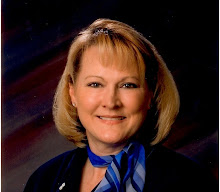Coffee, tea, or AED?
Flight Attendants train for so many emergency procedures--it's mind-boggling that most people think our entire job is to schlep drinks and pillows. Here's a short list of what my colleagues and I are trained to handle, and get qualified on annually:Hazardous material: We have to know what wheelchair batteries can be boarded and which ones can't. We must be able to identify and handle and contain hazardous spills onboard. (And, hope it doesn't start to smoke or catch on fire!) Oh, and that Bacardi 151 rum...too much alcohol! It is flammable and is a hazardous material and cannot be boarded on the airplane!
Fire: You do not want fire on your plane! Worldwide, Flight Attendants are trained on how to use the protective breathing equipment and fight a fire anywhere onboard the aircraft. On one of my flights to Frankfurt--over the ocean in the middle of the night, the pilots had an indication of a fire in the crew rest area, which is upstairs in the the tail of the 747 aircraft. Flight Attendants were pulling out the panels of the wall to find the source of the alarm. It turned out to be a bad indicator light, but having a fire with almost 400 souls onboard in the middle of the Atlantic Ocean, and no one fighting it, would be horrendous.
Decompressions: Airplanes are pressurized to reflect pressure at 8,000 feet. This is so we can breathe without supplemental oxygen at 37,000 feet. Structural damage or a malfunction of the pressurization system can cause the airplane to leak or explode and even out with the current altitude--which can cause hypoxia, hypothermia--and death, if not dealt with quickly--sometimes, it is a matter of seconds before people will lapse into unconsciousness. You may recall the golfer Payne Stewart and 5 others who died when the Learjet he was on lost cabin pressure. Decompressions are serious business.
Evacuations: Flight Attendants are trained to use commands to get you off the plane in the remote possibility there is a problem upon landing. Equipment malfunctions, smoke in the cabin, and idiots are some reasons planes are evacuated. Oh, and Flight Attendants can operate those big ol' lifeboats, in case you need to evacuate in the water. Flight Attendants are also trained in simple and basic survival. Need to hunt down a bear and serve it up for dinner? Hand me the buck knife! Okay, that might be a slight exaggeration...
Got a bomb onboard? I can help! Flight Attendants know what to do and how to keep you the safest if that occurs. (If I tell ya anymore, I'll have to kill ya...) A hijacker? We've got a plan for that, too. Diabetic problems onboard? Nurse Nancy reporting for duty. Totally different from the supplemental oxygen as mentioned above, we can administer medical O2 and still another kind: therapeutic oxygen. Did your baby just stop breathing? We are experts with infant and child and adult CPR. Are you bleeding profusely? In my best Mighty Mouse voice, "Here I come to save the day!"
And, I tell you all this because my heart is heavy for my friend, whom I'll call John. John is a senior Flight Attendant for another major carrier. John was flying a trans-con (coast to coast) to San Francisco, when the call bell went off. He went to investigate. He said to me in an e-mail this week, "I'll never know how long that man was sitting there, not breathing." He continued with saying that he knew he needed to get the Automated External Defibrillator, or AED. "Ours is located in the aft, last overhead bin. That was like 25 rows away.....I FLEW down the aisle, and ripped open the bin, got the AED and as I was running, opened it up, tore off the pads and slapped them to my shirt.
When I got back up to the row, row 8. A nurse was performing CPR. I said, HERE! TAKE THE PADS! She placed them on and I observed the verbal commands on the AED. Shock (the patient) the AED said. I yelled, "Stand back!" The man's body jumped in the aisle.
John told me that he was advised by the AED to administer several more shocks to the passenger, who was blue from the chest up. He writes, " A few more minutes, I looked up and saw the "A" flight attendant watching. I yelled, "GET THIS PLANE ON THE GROUND!" He ran for the Interphone (to call the cockpit). A doctor used the EpiPens in the Emergency Medical kits."
In all, John says they worked on the passenger for 45 minutes, administering CPR, shocking his heart, and mouth to mouth resuscitation. The plane diverted to a Midwest city, where paramedics boarded and the gentleman was taken off the aircraft.
John wrote, "We later learned inflight as we took off from *** on our way to SFO, that he had died.
I cried in the back galley. How sad, how horrible.
The man was from ***. Had a wedding ring on.
I cried myself to sleep on my layover in SFO.
Yesterday I received this in an e-mail from John:
"I'm stunned the AED did not work for this passenger. I pulled up the survivability of a heart attack and using the AED online today. Learned a lot. You must use it as quickly as possible, within FIVE MINUTES of the attack and for every minute that passes, you lose 10 PERCENT survivability rate. When AED's are used within two minutes, survival rates of 75% have been achieved; if they're used within three minutes, a 70% survival rate can be expected."
Remarkable that he is spending his down time trying to learn what he can about the use of AEDs. But, not so remarkable when you know John, because he's just a Flight Attendant who cares. Like most of us, really.
He finished up with, "WE TRAIN to deal with emergencies, but aren't educated to deal with the aftermath. All week, I've felt like it's been a death in my family. "
So, whether she is smiling or scowling, really sweet or a bitch, a dinosaur (senior mama) or a cutie 20-something, your Flight Attendant is fully qualified to handle all these emergencies, and maintains this qualification every year, by law.
Now....would you like something to drink?

 Blondie
Blondie



3 What's YOUR view? Click here to comment, please!
Write What's YOUR view? Click here to comment, please!Bravo Bravo!!!
ReplyAMEN ,,,, SISTAH!!!...
ReplyBeen There, Got the T-Shirt, I remember after an emergency once,,, This passenger said to me " I did'nt know ya'll were trained to do that",,,
What do they think we do for 8 weeks, Learn to pour coffee @ 30 Thousand feet..
Geeeesh!!!
WE TRAIN to deal with emergencies, but aren't educated to deal with the aftermath. All week, I've felt like it's been a death in my family. "
ReplyThat statement says it all. I was recently involved in giving CPR on a passenger on a transatlantic flight. Although we tried and tried, he couldn't save him. For weeks, I relived every moment over and over and was grieving for a man I didn't even know. I don't know why I felt this way, but it sucked.